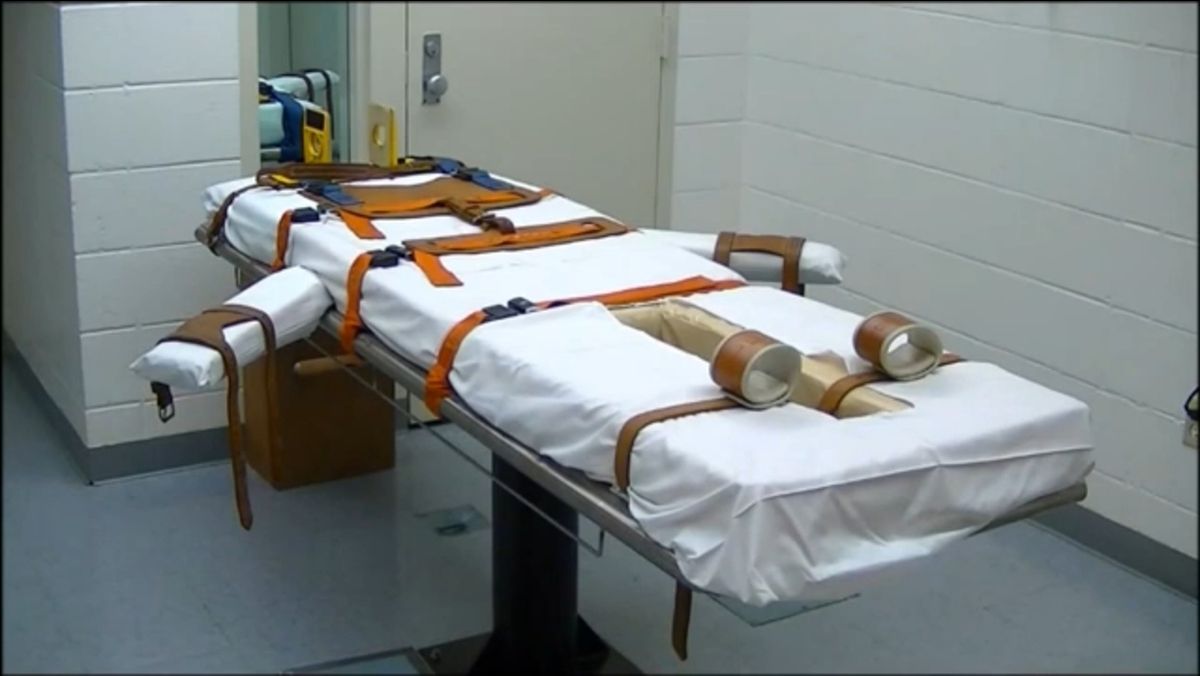Daniel Lewis Lee executed in US’ first federal execution in 17 years following Supreme Court ruling

A few minutes every morning is all you need.
Stay up to date on the world's Headlines and Human Stories. It's fun, it's factual, it's fluff-free.
On Tuesday morning, convicted murderer Daniel Lewis Lee was executed in the United States’ first federal execution since 2003. The Supreme Court ruled by a majority of 5-4 overnight that the execution could proceed.
According to the Bureau of Prisons, Lee was pronounced dead at 8:07 a.m. Eastern Standard Time (EST) in Terre Haute, Indiana, following the Supreme Court’s release of its ruling after 2 a.m. EST.
His last words, according to a pool report, were, “I didn’t do it. I’ve made a lot of mistakes in my life but I’m not a murderer. You’re killing an innocent man."
Lee was convicted in 1999 of robbing and murdering three people in Arkansas. William Mueller, his wife, Nancy Mueller, and their daughter Sarah Powell. Lee and his accomplice in the crime, Chevie Kehoe, were part of a group that wanted to create a white supremacist community in the Pacific Northwest.
Lee was executed by lethal injection through the use of the drug pentobarbital, which was introduced by the US Justice Department last year for use in federal executions.
Lee’s execution was scheduled to be carried out on Monday. However, the US Court of Appeals for the District of Columbia Circuit temporarily blocked the execution, ruling that Lee and other inmates on death row could continue making the case for the unconstitutionality of lethal injections in court.
Death row inmates have argued that lethal injections violate their constitutional right to not have “cruel and unusual punishments” inflicted on them. The injection has been alleged to cause medical problems, before the inmate dies, in the cases it has been used in previously.
But the Supreme Court cited prior rulings stating that lethally injecting pentobarbital “‘is widely conceded to be able to render a person fully insensate’ and ‘does not carry the risks’ of pain that some have associated with other lethal injection protocols.”
Therefore, the Supreme Court ruled that the execution could proceed as “the plaintiffs in this case have not made the showing required to justify last-minute intervention by a Federal Court."
The case was ruled along party lines. The court’s five conservative justices, Chief Justice John Roberts and Justices Clarence Thomas, Samuel Alito, Neil Gorsuch and Brett Kavanaugh supported the ruling.
Citing court precedents, they stated, “It is our responsibility ‘to ensure that method-of-execution challenges to lawfully issued sentences are resolved fairly and expeditiously,’ so that ‘the question of capital punishment’ can remain with ‘the people and their representatives, not the courts, to resolve.”’
The court’s four liberal justices dissented from the ruling.
Justice Sonia Sotomayor, joined by Justices Ruth Bader Ginsburg and Elena Kagan, criticized the “hastily” ruled case.
“The court forever deprives respondents of their ability to press a constitutional challenge to their lethal injections," Sotomayor wrote.
Justice Stephen Breyer, joined by Justice Ginsburg, said in a separate dissent that the court must examine the constitutionality of the death penalty.
“The resumption of federal executions promises to provide examples that illustrate the difficulties of administering the death penalty consistent with the Constitution,” Breyer wrote.
On July 10, a federal judge in Indiana also temporarily blocked the execution from proceeding upon request from the relatives of the victims that it be postponed due to travel-related risks due to the COVID-19 pandemic.
Nancy Mueller’s mother, Earlene Peterson, Mueller’s sister, Kimma Gurel, and Mueller’s niece, Monica Veillette, stated in court filings that their existing health issues meant they would be under “grave risk” if they traveled to Indiana to attend the execution.
However, on July 12, the US Court of Appeals for the 7th Circuit ordered that the execution proceed, calling the relatives’ legal arguments “frivolous” and adding that “they have no statutory or regulatory right to attend the execution.”
The family filed an appeal to the Supreme Court that was denied in an order issued Tuesday morning.
The victims’ relatives had also disapproved of the federal government’s decision to execute Lee, saying that it was unfair given that his accomplice, Kehoe, who has been described by officials as the ringleader of the murders, was given a lifetime prison sentence.
Lee’s attorney Ruth Friedman criticized the ruling in a statement on Tuesday.
“It is shameful that the government saw fit to carry out this execution during a pandemic,” adding, “It is shameful that the government saw fit to carry out this execution when counsel for Danny Lee could not be present with him, and when the judges in his case and even the family of his victims urged against it.
“And it is beyond shameful that the government, in the end, carried out this execution in haste, in the middle of the night, while the country was sleeping. We hope that upon awakening, the country will be as outraged as we are."
US Attorney General William Barr said in a statement that Lee “finally faced the justice he deserved,” adding that “The American people have made the considered choice to permit capital punishment for the most egregious federal crimes, and justice was done today in implementing the sentence for Lee’s horrific offenses."
At present, there are 62 inmates on federal death row.
Have a tip or story? Get in touch with our reporters at tips@themilsource.com




Comments ()